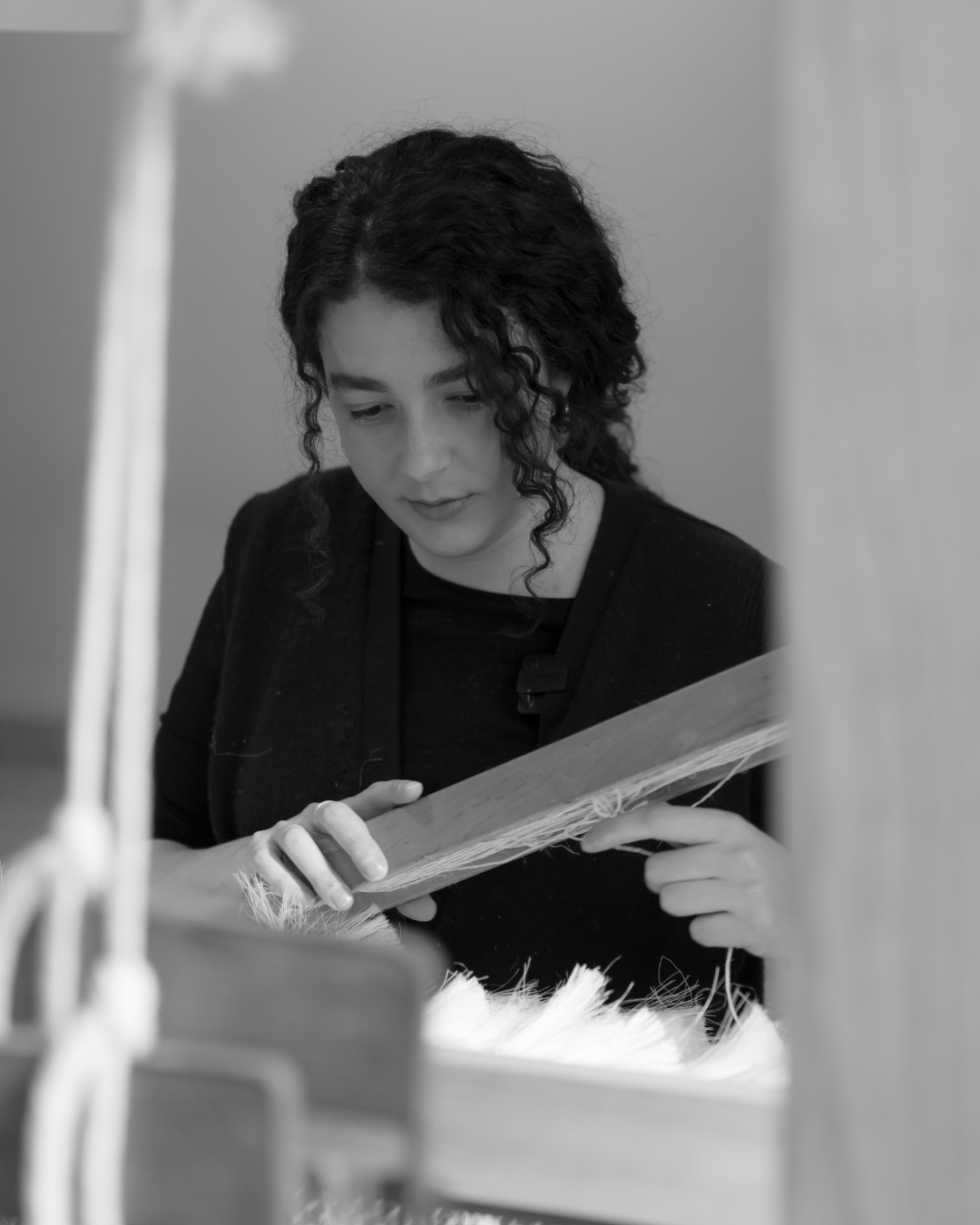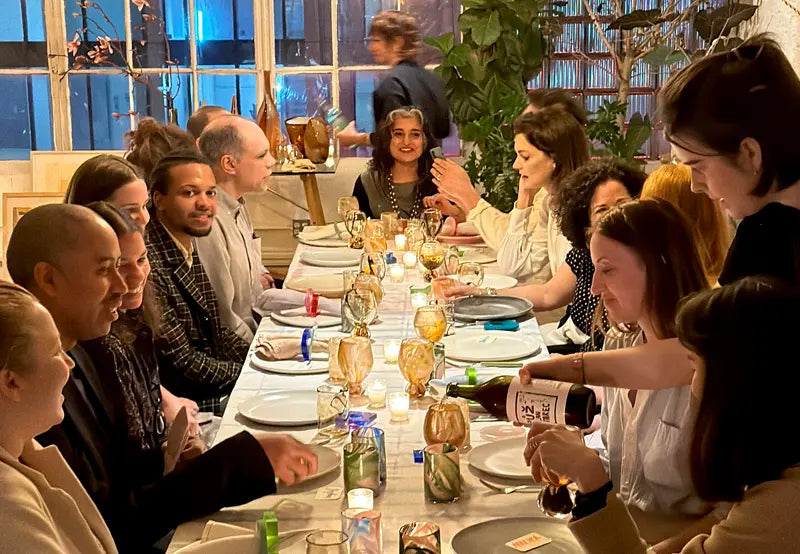
Now Serving: Purple Potatoes and Spirited Debates
PBP hosted an evening of sustainable dining in NYC, sparking candid conversations about the future of sustainable sourcing across the globe.
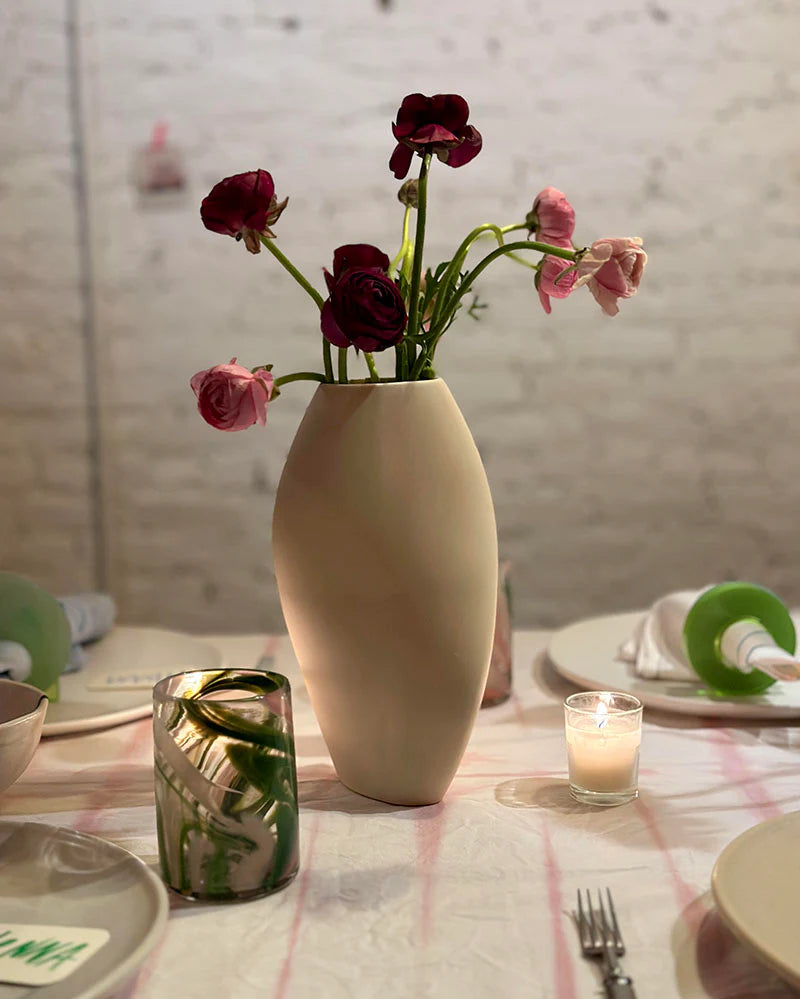
Ceramic vase by Homa Studios.
If you want to throw a memorable dinner party, good food and drink are a must. But the most important ingredient? Who you invite.
The other night in New York City, Powered by People welcomed a buoyant gathering of makers, buyers, designers, brand executives and editors—not just to finally enjoy each other’s company post-pandemic, but to exchange thoughts on a shared goal: How to elevate sustainably-made goods in a world where conscious consumers are demanding them more and more.
In keeping with the evening’s mission, the venue was held at the Chinatown studio space of maker Kalen Kaminski, who runs the tie dye–inspired brand Upstate. Celebrated chef Lauren Gerrie, handled the food, crafting a market-driven menu inspired by the colors and textures of the night’s participating makers.
Those local makers being Fernando Aciar from Fefo Studio, a new addition to the PBP platform; New Jersey-based ceramicist, Altarik Banks, of Homa Studios; and Pia Rappaport of Pillowpia.
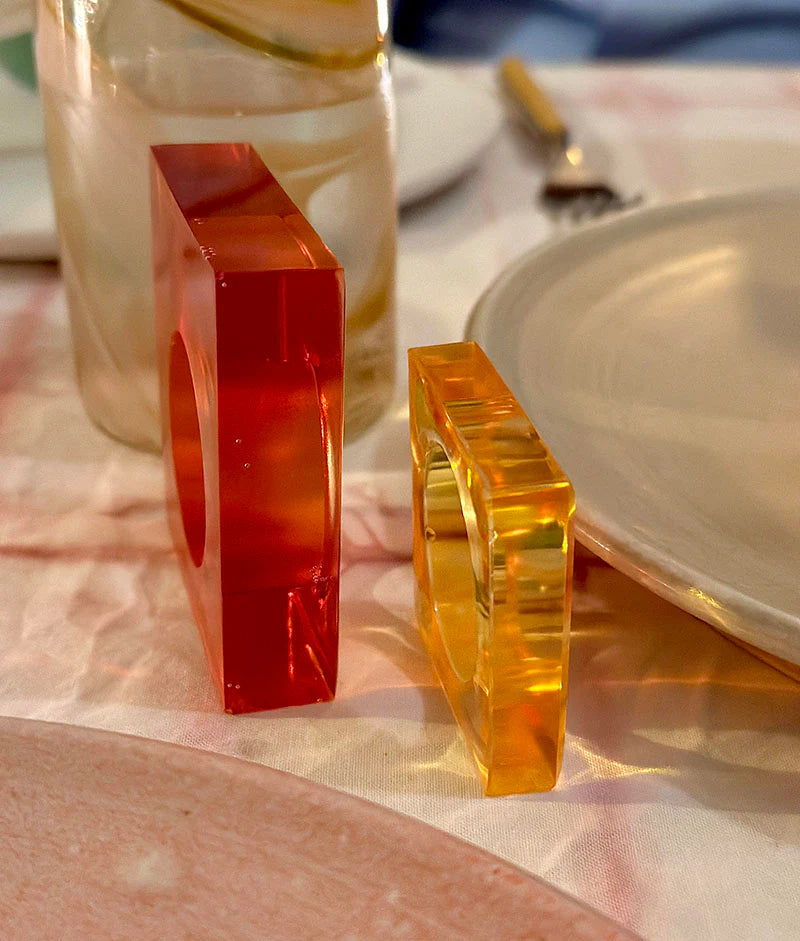
Jewel-toned resin napkin rings by Pillowpia.
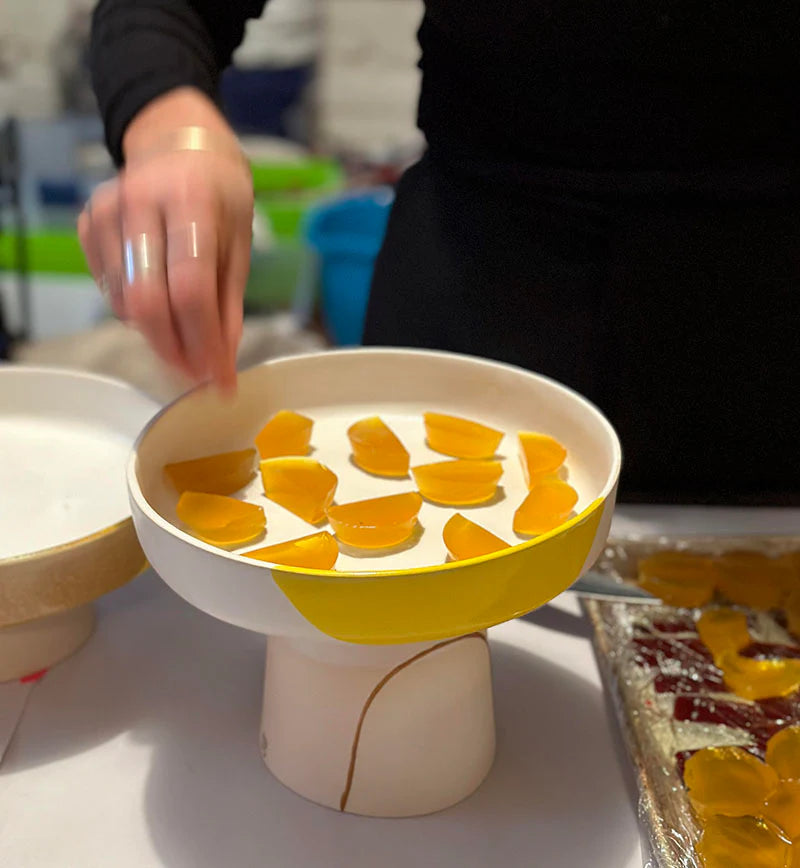
Ginger and marigold jellies in a serving vessel by Fefo Studio.
As guests settled in with Prosecco spritzes, infused with Cocchi Americano, Gerrie set out an array of small bites, including a pair of savory gummies (no, not those kinds), made with ginger, marigold and licorice root, and beet, apple and pomegranate, mirroring the tablescape’s jewel-toned resin napkin rings from Pillowpia. Seeded crackers and miso-cashew-puree bites echoed the more earth-tone palates of Aciar and Altar’s ceramics.
Conversations percolated quickly, as guests shared their challenges and successes as they work to both make and source sustainable products.
Aciar, as he is often does, cut to the quick. “The challenge is, when things are mindfully made with fair pay, the cost is going to be higher. So, the question is, how can we make your products accessible to everyone? In a lot of ways, I feel like handmade is the new luxury.”
Quality was a recurring theme. Interior designer Jenna Chused burrowed into a conversation with Paulo Kos, VP of Design and Development at The Citizenry. She was happily surprised to learn of brand’s commitment to quality materials on all levels.
“I really enjoyed hearing about what was going on behind the scenes at The Citizenry,” says Chused, who’s agency Chused & Co. works on residential projects across the country. “Like that they are dealing with small-upholstery, family-owned vendors and using high-end fabrics such as Libeco linen from Belgium. There are so many direct-to-retail brands that are fronting as small companies but just want to get the cheapest product and highest margins possible. I really believe there is a move to sourcing smaller and making higher quality products.”
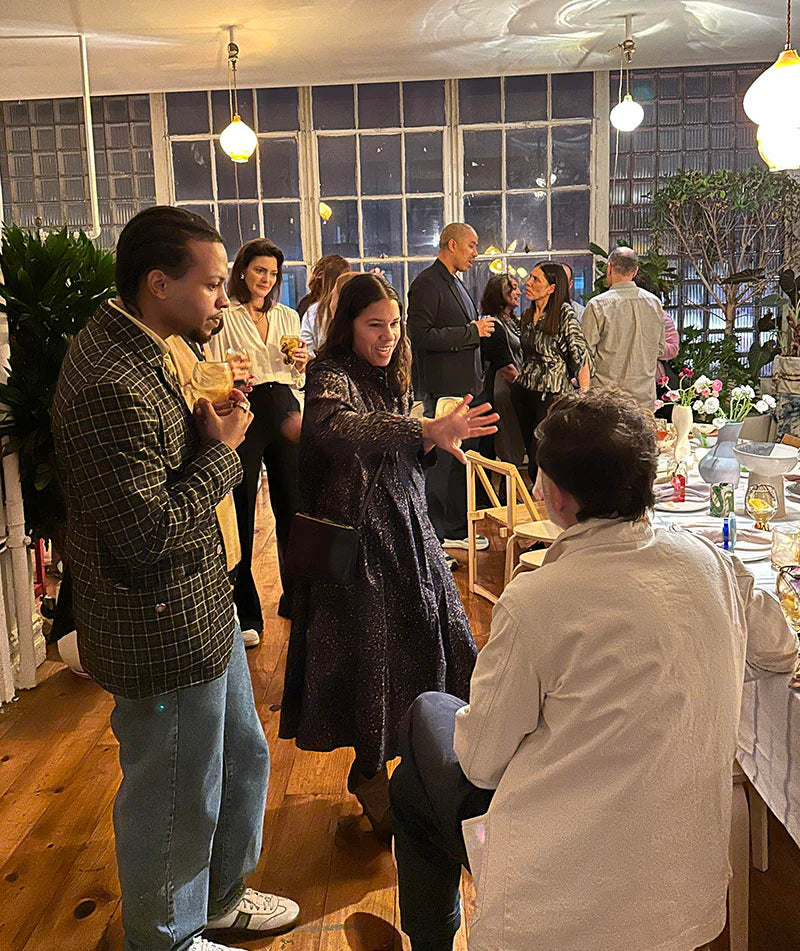
Homa’s Altarik Banks and Candice Waldron from Inness, breaking it down.
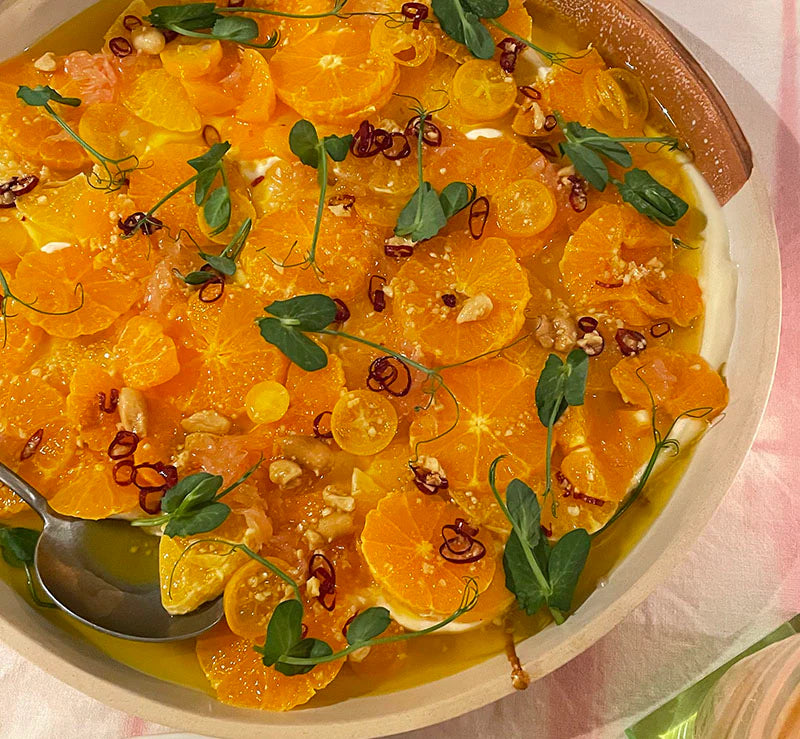
Citrus salad by Chef Lauren Gerrie in a Fefo serving bowl.
Gathered around a single, long table, dinner brought an array of eye-opening dishes, including slow-roasted short ribs with a pho-inspired broth made from a Chinese medicinal herbal tea. (Gerrie sourced the accompanying rice from the New York-based sustainable-rice purveyor, The Rice Factory.) Salt-boiled purple potatoes with coconut yogurt bounced next to a vibrant orange citrus salad. Gigante beans in a confited garlic-and-ginger emulsion rounded out the menu. When the family-style dishes, served in Homa and Fefo ceramics, hit the table, a cluster of iPhones emerged to capture the kaleidoscopic colors.
Altarik noted that because of production demands, he no longer uses clay sourced in a stream behind his studio. “It was not sustainable on such a large scale,” he says. But growth has its rewards, as he has just located to a sparkling new design studio/retail space in the ambitious new Newark Makerhoods development. While he is now outsourcing some of his production, that allows him to spend more time on design. It’s a tradeoff that has fueled his small brand’s growth.
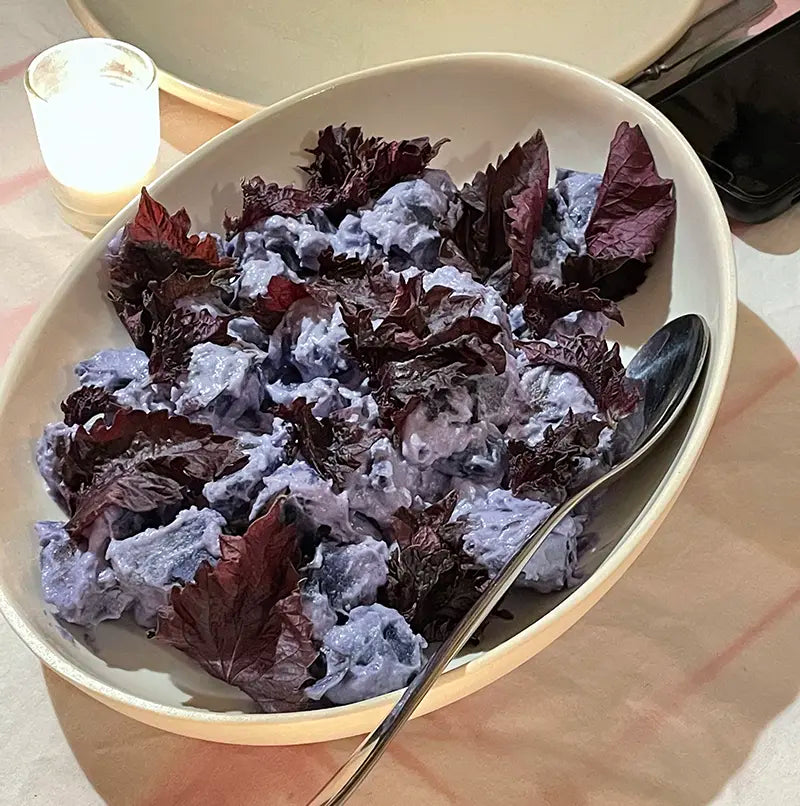
Purple potatoes with coconut yogurt in a Homa serving bowl
Eventually, pandan pudding with lemon curd reached the table, as spirited conversations rippled throughout the industrial loft space. Stephen Burks and Malika Leiper of Stephen Burks Man Made, the celebrated industrial design studio, shared their unique views on design and culture with Candice Waldron, who runs the impeccably-curated shop at the upstate New York escape, Inness.
Across the table, Madeleine Luckel, design editor at Architectural Digest, got to know Jennifer Gootman, an ESG pioneer now with Tory Burch. And holding down the end of the table was Swati Argade from the fascinating textile-focused non-profit, Tatter.
As Aciar noted, there was an undeniable oneness to it all.
“The best part about being a maker is being able to collaborate with other people, from buyers and store owners to other makers, who care about the quality of the product, from beginning to end,” he says. “It’s kind of like farm to table in the restaurant world. That commitment makes me proud.”
11 Must-Have Holiday Gifts
Tis the season for standout finds. Unwrap our top holiday picks
Read moreThe Woven Wall
For Mexico-based maker KREYÉ, the artistry of craft represents both beauty and commerce
Read more

